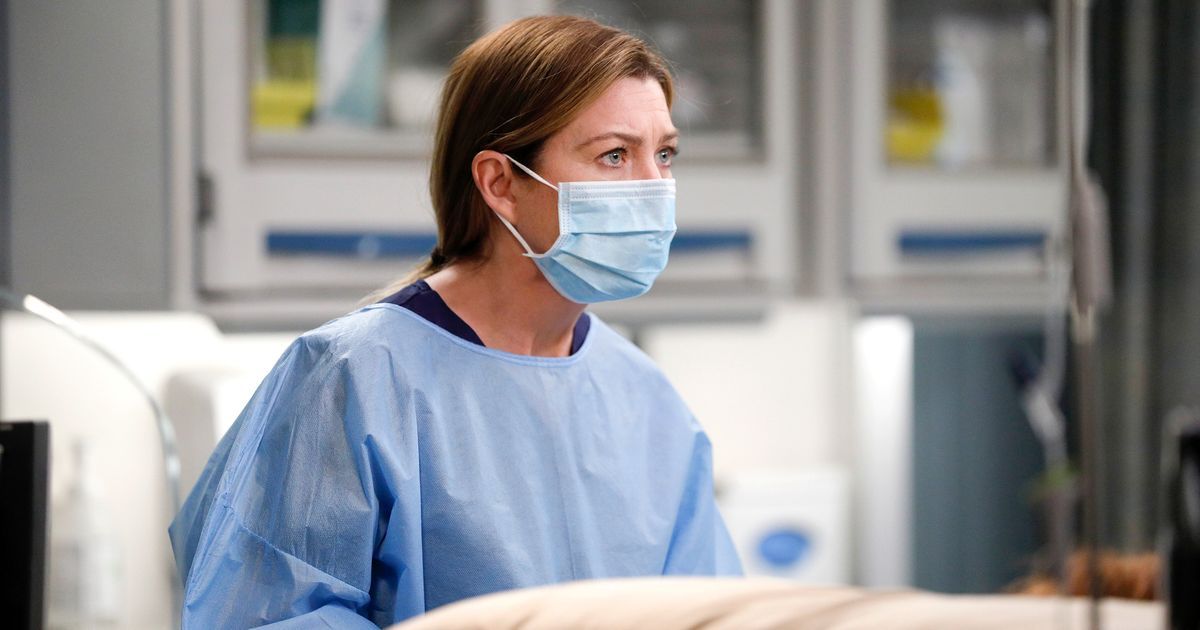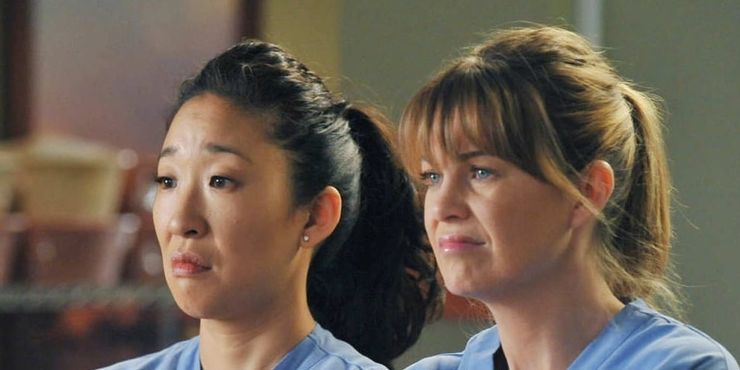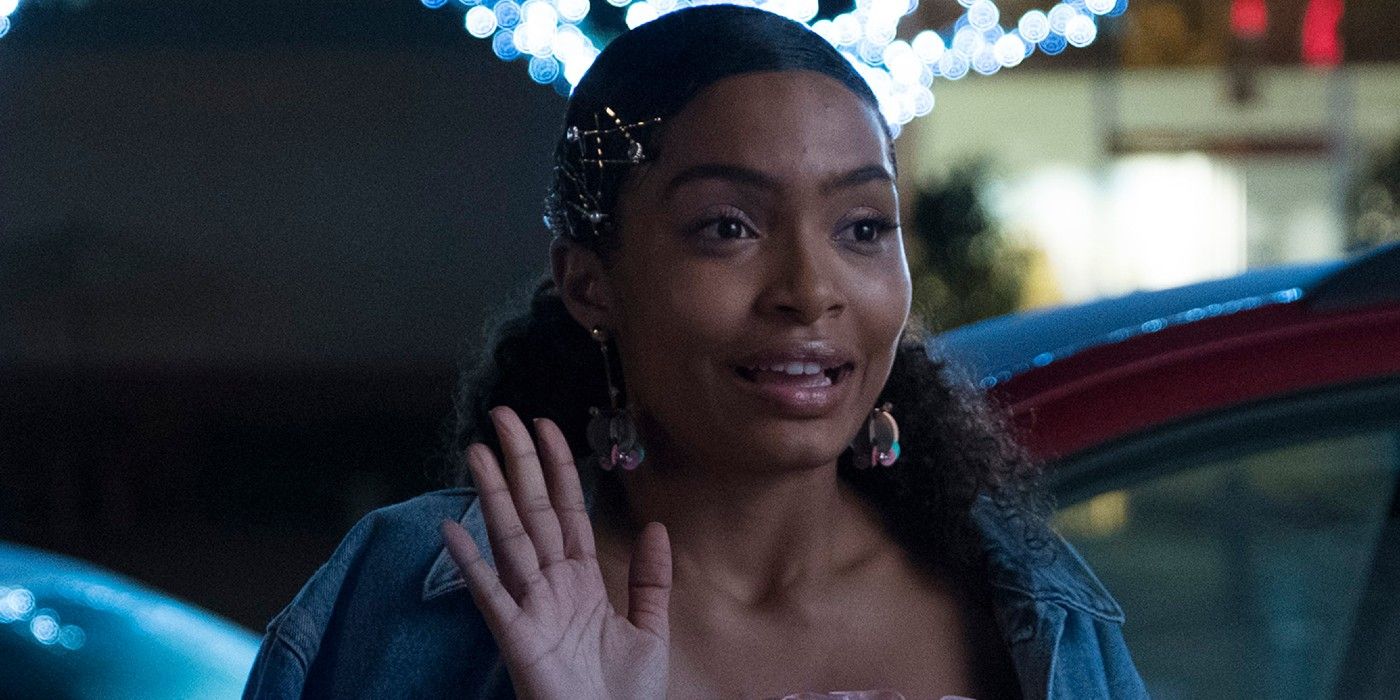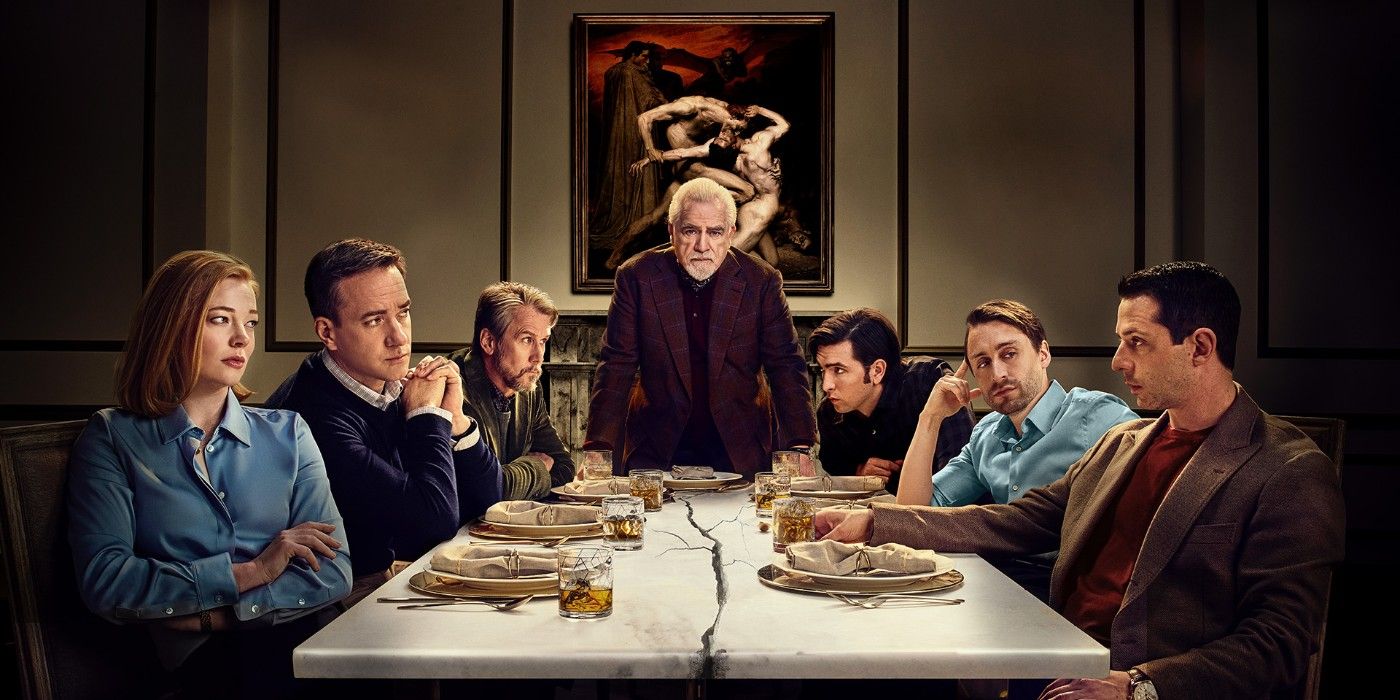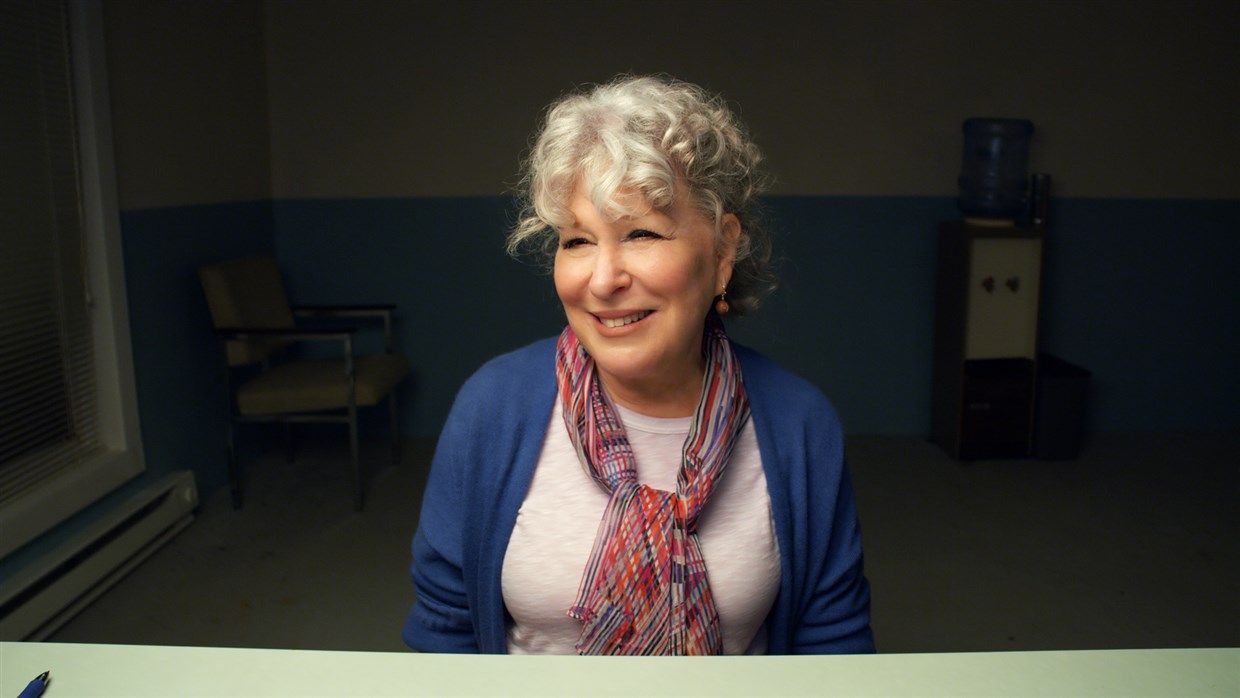"It's a war that never ends – cinematically speaking, that is," wrote film critic Andrew Pulver on the influx of Hollywood films set during WW2 in the mid-2010s. Something about the years between 1939 and 1945 grips still grips audiences 70 years later. In fact, the idea of war, or rather the mindset of war, is so often evoked in the insults thrown back and forth on Twitter ("Millennials and Gen Z are snowflakes, they wouldn't have won the war!") that it's hard to escape it.
The COVID-19 pandemic has often been spoken about, rightly or wrongly, as if it were a war and the language keeps lending itself to that comparison (including the outgoing President Donald Trump referring to himself as a "war-time" president back in March). However, the desire to see stories about the Coronavirus on screen has been seemingly less enthusiastic than previous historical events. In July, Angela Watercutter asked, in an article for Wired, if it was too soon for shows, like Grey's Anatomy, to start including COVID storylines. She notes that sometimes hindsight and perspective are useful in engaging with these events, especially when they're so complicated and challenging. For example, it took five years before United 93, the first fiction film to deal with 9/11, to premiere while films dealing with the AIDS crisis also took their time to come to the screen (though, that might be more linked to homophobia than allowing a period of reflection).
Grey's Anatomy, however, was not the only show to announce that their upcoming season was being rewritten to include the pandemic. Naturally, a lot of other medical dramas and crime procedurals followed suit: The Good Doctor, Station 19, Chicago Med, and many more reworked their storylines. This makes sense, as shows like this are often known for ripping stories from the headlines, including dealing with wildfires, mass shootings, and so much more, that to ignore the biggest story to hit the world in 2020 would feel a little strange. Plus, they are all set within professions that have been severely altered by the ongoing pandemic.
What felt less obvious however was when other shows, particularly sitcoms, began announcing that COVID-19 would feature in their upcoming seasons too. Most notably, ABC's ever-expanding "-ish" franchise would do so, meaning Black-ish and Grown-ish would include pandemic-based plots. For Black-ish that meant Bow Johnson (Tracy Ellis-Ross), who plays a doctor on the show, would be on the frontlines as the pandemic ramped up. Grown-ish, which features Yara Shahidi's character Zoey Johnson while she is away at college, was more challenging to plan for as the writers weren't sure if colleges would even be open when the show hit the airwaves. The creator of both shows, Kenya Barris, told The Hollywood Reporter in May that planning for how the shows would move forward was difficult without looking tone-deaf. "We're still very much in the middle of this," Barris said, "and it's really hard to write about the fight in the fifth round."
Similarly, ABC's The Connors (formally the Roseanne reboot before all that went down) is also addressing the pandemic. While not featuring characters within the medical profession, The Connors prides itself on representing the working class – a group substantially affected by the pandemic. In the new season, Jackie (Laurie Metcalf) is struggling to keep her recently opened diner afloat as she can only offer takeaway options while Dan Connor (John Goodman) is facing the bank, who wants to foreclose on his house due to an overdue mortgage. Once again, the cast and crew of the show felt that a show that didn't deal with the current state of the world and how it affects the people it represents (the working class) wouldn't feel right. Alongside The Connors, Shameless (Showtime), The Good Fight (CBS All Access), This Is Us (NBC), You (Netflix), and Curb Your Enthusiasm (HBO) have all confirmed they'll deal with the economic effects of the virus as well as the health implications when they return too.
The same goes for NBC's Superstore, which features another group of people significantly affected by the pandemic. The show also aims to deal with the injustice that was highlighted over the summer as the titular superstore's parent company refuses to provide PPE for the staff as well as finding humor in the panic buying that preceded lockdown (jokes about toilet paper, abound!). Still, this show, and the others like it, are shows that often try to reflect, in some way, the world we live in but what about shows that don't reflect everyday life?
HBO's mega-hit Succession, for example, doesn't exactly represent the average Joe as it follows the privileged Roy family who owns a massive corporation mostly known for its biased news coverage. The creators of the show have chosen not to rewrite its upcoming season in response to the pandemic. Lucy Prebble, a writer for the show, told GQ that "there were no major changes happening to the script" in light of current events. Instead, HBO felt protective over the show as it is; a slick, bold, and complicated show about the super-rich. Considering the second season, which ended on a major cliff-hanger, set up enough powerful drama to fill the third season perhaps there simply wasn't any room for COVID. After all, some shows don't lend themselves to including the pandemic. Ryan Murphy's trio of shows (American Horror Story, American Crime Story, and Pose) with their fantasy-based world or, as the latter two are, being set in the past exclude them from needing to comment. The same goes for the Charmed reboot which has said they won't directly address the pandemic but will explore themes of distance and isolation.
Lastly, that leaves the shows that were born in the pandemic. In the UK, Staged, a six-part comedy starring David Tennant and Michael Sheen (who both star in Amazon Prime's Good Omens) as fictionalized versions of themselves premiered on the BBC in June. It featured the actors trying to rehearse for a play over Zoom but often becoming sidetracked. The show also featured the actor's actual families in supporting roles as well as guest stars, like Samuel L. Jackson and Judi Dench, appearing via Zoom. In October, as the UK prepared for a second lockdown, the show was greenlit for a second season making it one of the first television successes of the pandemic. Though, as Louis Chilton wrote in his review for The Independent; "It's hard to imagine that many people will return to Staged when the pandemic is a distant memory, that its jokes about Zoom, or lockdown drinking habits, will still land.
In the US, the first glimpse of COVID-19 inspired content looked star-filled and glossy. Coastal Elites, directed by Jay Roach (Bombshell), was a made-for-TV movie that premiered on HBO in September and starred Bette Midler, Sarah Paulson, Issa Rae, Dan Levy, and Kaitlin Dever. Described as a "socially-distanced satire", the film featured a series of privileged liberal characters as they faced the idea of a "new normal". Whether that was a woman (Midler) being interviewed after assaulting a man for wearing a MAGA hat in New York City "two blocks from the public theatre and The Cooper Union where Lincoln spoke!" or a wellness coach (Paulson) streaming her meditations live online asking her class to imagine they're not "even on Twitter, or Facebook, or Xanax." The film got mixed reviews and was condemned for its "preachy" vibe (which likely wasn't helped by the ongoing presidential election at the time). Still, it opened the door to programming created during the pandemic.
Most notably of those that followed was Social Distance, an anthology series that would be headed by Orange Is the New Black creator Jenji Kohan for Netflix. The cast included Mike Colter (Luke Cage), as a recovering alcoholic struggling with isolation, Oscar Nuñez (The Office) trying to help his family grieve a recent loss via video call, and Danielle Brooks (Orange Is the New Black) as a carer for a senior citizen trying to help her daughter who is home alone. Again, the show received mixed reviews indicating that it isn't clear how to deal with the pandemic on TV just yet. The same could be said for NBC's new comedy Connecting…, which followed a group of friends trying to stay in touch during lockdown. The show wasn't a massive hit, and its final episodes were pulled from the fall schedule and were put on NBC's streaming service Peacock instead.
It is a complicated question, one that has many different answers. It does seem clear though that, unlike WW2, the pandemic will not have the cinematic gusto for audiences to keep returning to it. Or maybe it's just too soon. As recent news of a COVID-19 vaccine has provided some hope, maybe now audiences will feel more interested in engaging with the pandemic on TV now there might be an end in sight? Or possibly, once it's over, there will be increased interest as the old adage goes: tragedy + time = comedy.
Ultimately, as the pandemic drags on and it continues to expose sweeping inequality in America and across the world, do people want to see it take over their TV shows too? TV has often been used as escapism but what happens with the sitcom you love starts looking more and more like the news? Conversely, how do creators, writers, and actors work on shows that aren't connected to the current moment? Would any show that refuses to reference the pandemic but has delved into other political or social commentaries, look odd or out of place now? Many shows are now back in production so we’ll have to wait and see how favorites like The Morning Show (AppleTV+), Ramy (Hulu), Killing Eve (BBC America), Insecure (HBO), or any of the hundreds of TV shows currently slated to return in 2021 decide to respond.

